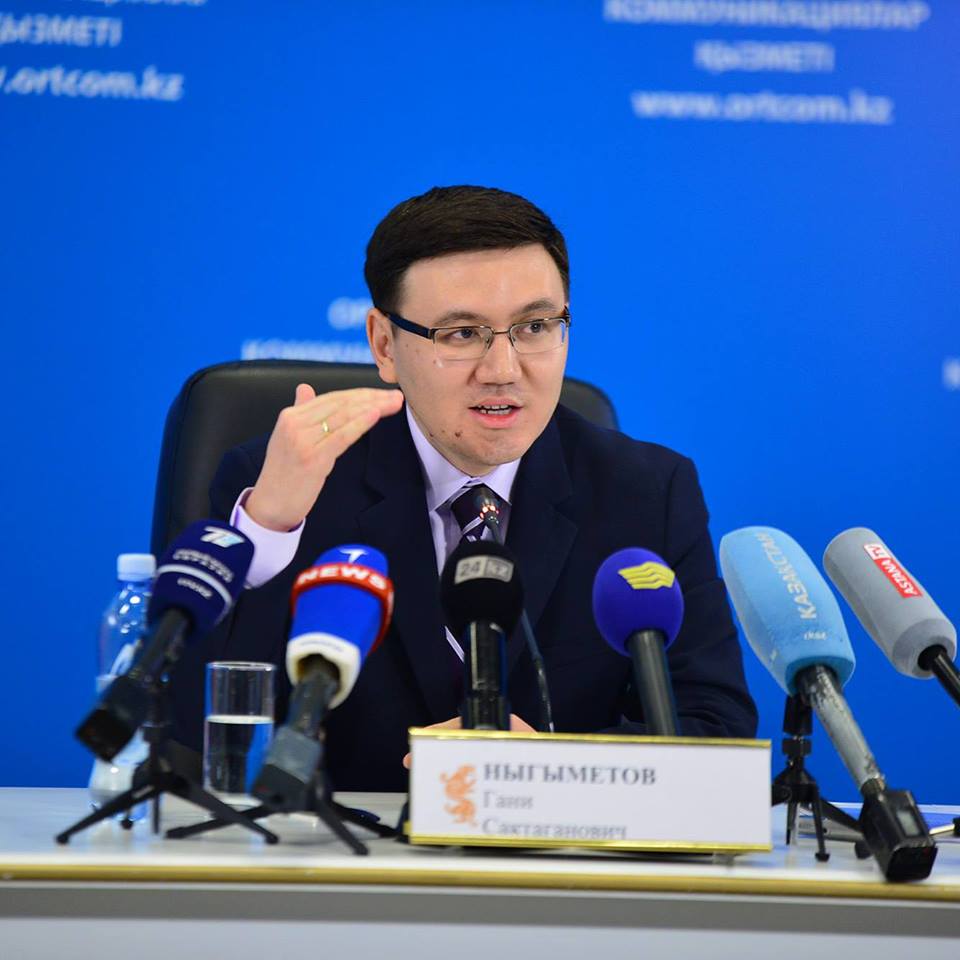ASTANA – The end of the Bolashak Presidential Scholarship’s five-year plan has coincided with Kazakh President Nursultan Nazarbayev’s election campaign call for a development push based on his proposed five institutional reforms, giving the scholarship programme the chance to create a plan based on the new needs of the developing nation.
“What is good about this programme is that it is not static,” said President of the Bolashak Centre for International Programmes Gani Nygymetov in an interview with this newspaper on July 3. “It evolves, it changes, taking into account the reality, the needs of the country. Now, we are on the threshold of a new five-year plan and our idea is to help our President implement these reforms through the people we train – through the civil servants we train, through the doctors we train, through the engineers we train, through the managers we train.”
The programme’s next five-year mission is to train professionals to help implement the Plan of the Nation, the 100 concrete steps designed to help Kazakhstan implement the President’s five reforms, many of which relate to creating a better, more modern state apparatus and a diversified economy.
Many of the 100 steps require special skills, Nygymetov said. For example, a proposed international financial centre in Astana will need lawyers trained in English law. Civil servants, accountants, judges, teachers and teacher-trainers also need to be trained to implement language learning, auditing, judicial system and other reforms, Nygymetov said.
Bolashak’s new five-year programme addresses these needs, he said. They want to introduce internship programmes for civil servants specific to the 100 concrete steps. Bolashak will work with civil service agencies, the Supreme Court, the Ministry of Justice, accounting committees and other bodies to define those goals, Nygymetov said.
He hopes to bring in executive education, with 15 scholarships proposed for two- or three-week training sessions for Kazakhstan’s top CEOs at top business schools, including Harvard, Yale and Stanford.
He also wants to reinstate support for MBA students. MBA scholarships had been cut on the assumption that MBAs should be trained by the private sector, but Nygymetov believes the country needs more MBAs and their advanced management skills for its state companies.
The plan is to offer 10 scholarships per year to students who have been accepted to the world’s top 10 business schools. Scholarship recipients will be required to work in Kazakhstan for five years after graduation, Nygymetov said.
Kazakhstan needs people who understand business, especially how to develop small- and medium-sized businesses, he said. “I think the biggest thing we need to do now is to train entrepreneurs, future employers who will create jobs.” He notes that industrialisation and economic growth reforms call for the value of state companies to be increased – which means smart managers will be needed.
He also hopes to send 500 teacher-trainers from Kazakhstan’s universities to master’s programmes to support the country’s trilingual education goals and other education reforms.
This draft plan has been provisionally approved by the National Commission on Specialist Preparation Abroad and the National Commission for Modernisation, which is implementing the 100 concrete steps.
“We are very glad for these 100 steps; they’ve proved very timely,” Nygymetov said. “Even this budget situation has helped us look at ourselves from a different point of view.” They’ve cut or changed programmes that weren’t working well, he said, and by cutting numbers, competitiveness and quality are increasing: the number of self-admitted students with high GPA and high language proficiency has almost doubled this year. Self-admitted students are those who have, through their own efforts, been admitted to top international programmes and then apply to Bolashak for funding.
The Bolashak scholarship was named the world’s best international scholarship programme at the 2014 Going Global International Conference. The conference liked Bolashak’s openness, gender balance, work requirement system and geographic diversity, Nygymetov said. Bolashak sends students to 33 countries, he said; lately, they are seeing more Ph.D. students heading for Asian countries, such as Japan and South Korea for programmes in biology and highly technical fields.
The international programme study broadens the students’ experiences and perspectives, he said. They return with a more open-minded, modern view of the world. Nygymetov added that the shift to a more modern, broader way of thinking needs to occur gradually to avoid instability. “It’s a system, right? You need to change the system gradually, working within it, trying to change what you do, trying to be the best at what you do.”
He also noted that Bolashak scholar makes three times the average Kazakh salary and should be grateful to the taxpayers who have invested in their education. “We have to meet [people’s] expectations,” Nygymetov said. “And we should not feel that we are very special. We should feel that we are like everyone else, we are just given more responsibility. That’s why we need to work harder.”

